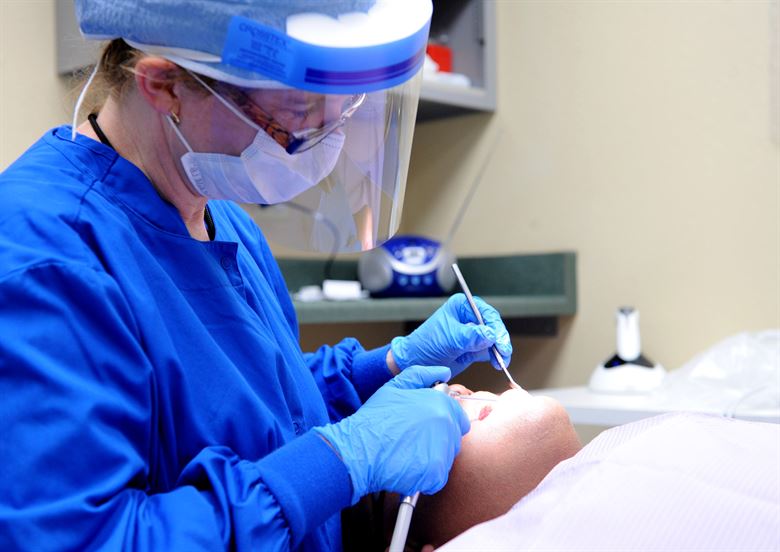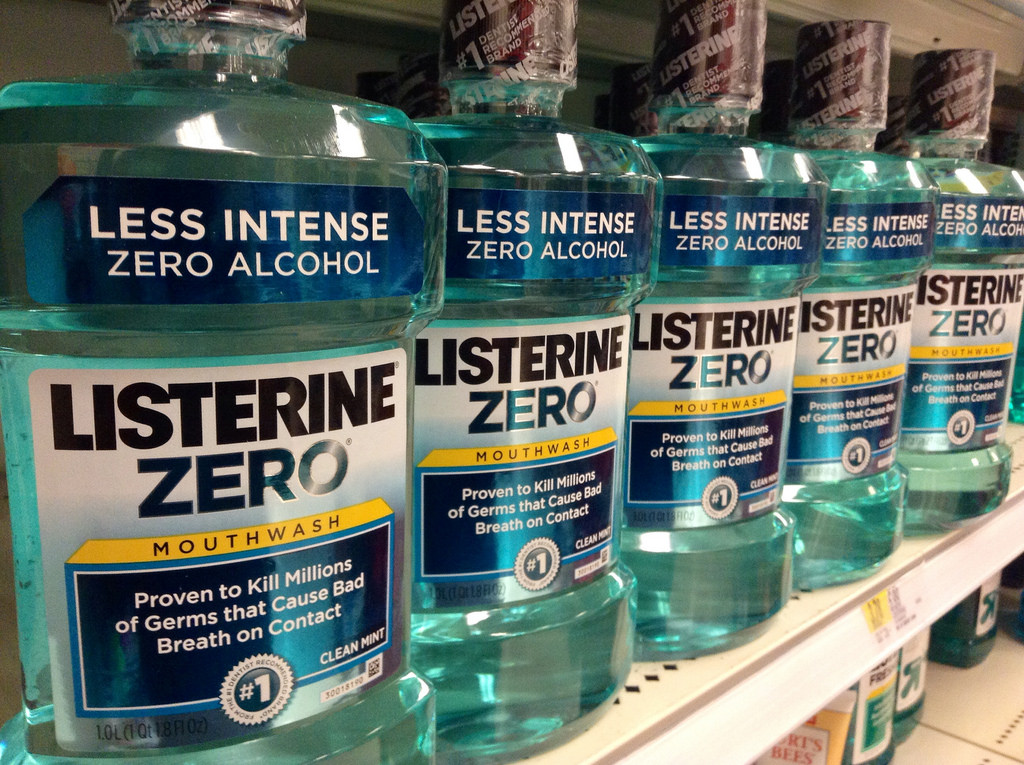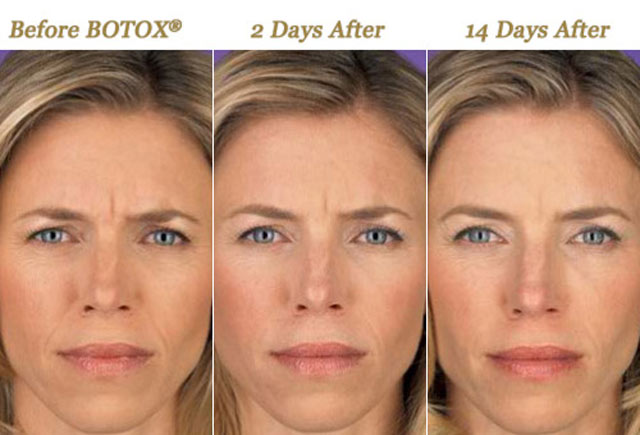Table of Contents
Eating disorders as mentioned in earlier post on various symptoms and types of eating disorders, are deteriorating to overall well-being and pose a serious concern about the oral health of patient too. In fact, 89% of people with bulimia have signs that show up in the mouth (National Eating Disorder Association, 2002).
Eating Disorders: Types, Symptoms and Causes
8 Effects on Dental Health due to Eating Disorders
-
Nutritional Deficiencies
In fear of putting weight people with eating disorders usually restrict their food intake which may lead to deficiency of vital nutrients. Oral cavity doesn’t stay away from the effects of nutritional deficiency too.
Nutrients that promote oral health include Vitamin A, B complex and folic acid, C, D and minerals calcium, iron, magnesium and zinc.
Deficiency of vitamin A can leads to enamel hypoplasia, atrophy of salivary glands and thereby contribute to decrease defence capacity of oral cavity against infection. Vitamin B complex deficiency can bring about recurrent aphthous stomatitis or canker sores, bad breath, atrophic tongue, painful , swollen or burning tongue, cracked lips, lips inflammation and scalding of tongue and sore throat.Deficiency of Vitamin C can cause Scurvy, which loosens gums, thus make teeth mobile and gums to bleed.
Deficiency of Vitamin D leads to the burning mouth syndrome (indicated by the pain the mouth that is burning or tingling, along with numbness, dry mouth, and altered sense of taste).
Vitamin D is essential for the absorption of calcium in the body. Without it, your entire mouth would show symptoms of calcium deficiency, underdeveloped teeth, gum disease, and tooth decay. Calcium deficiency can weaken the jaw bone which also weakens teeth and leads to tooth loss.
Iron deficiency can cause your tongue to become inflamed and sores can form inside your mouth
-
Dental Erosion, Perimylolysis, and Tooth Wear and Tooth Hypersensitivity
Enamel erosion is the most common and dramatic oral manifestation of chronic regurgitation typical of Eating disorders. Self-induced vomiting, repeated and chronic regurgitation of gastric contents drop the pH of saliva, eroding and deminerlising the top protective layer of tooth Enamel, thus causing tooth erosion.Tooth surface most commonly involved, present a classic erosion of the back surfaces of maxillary teeth and termed Permylolysis, results from both chemical and mechanical effects caused mainly by regurgitation of gastric contents and activated by the movements of the tongue.
Enamel erosion causes thinning and chipping of enamel, exposing second layer of tooth Dentin , followed by pain, due to dentin hypersensitivity
Exposed dentin on the back surfaces of the teeth becomes stained over the course of time.
-
Dental Caries
Dental caries becomes a problem due to eating disorders attributed to consumption of high-carbohydrate foods or cariogenic diet and citrus fruits, binging, poor oral hygiene and reduced saliva due to salivary disturbances. Also, Antidepressants used to treat anorexia nervosa cause decreased in salivary flow or xerostomia and may increase the incidence of carious lesions. The good news is that you can reverse tooth decay and dental caries with diet -
Traumatized Oral Mucosa Membranes and Pharynx
The trauma of oral tissues can be both by the rapid ingestion of food and by the force of regurgitation. The soft palate may be injured by objects used to induce vomiting and is often accompanied by cuts or bruises on the knuckles as a result of an individual’s teeth placing pressure on the skin while attempting to purge.
Patient can present with chronically inflamed and sore throat.
Angular cheilitis as a consequence of malnutrition and trauma is common finding. Oral candidiasis are associated with both nutritional deficiencies and salivary dysfunction. -
Altered Taste
Taste impairment (hypogeusia) associated with Bullimia Nervosa. Abnormal eating patterns, unusual food choices and frequent vomiting are possible factors for taste disturbances.
Poor taste sensitivity occurs in particular to sucrose (table sugar), hydrochloric acid or sodium chloride (table salt) and usually associated with the trace metal deficiencies, in particular the functional availability of zinc. -
Effects on Salivary Glands
XerostomiaAs stated above, Xerostomia is a common
side effect of the many psychotropic medications or appetite suppressants prescribed for eating disorders patients.Additional factors such as fluid imbalance caused by overuse of diuretics and laxatives taken to prevent weight gain and by persistent vomiting,
may be contributory. -
Enlargement of the Parotid Gland
Patients with eating disorders frequently have enlarged parotid glands- a salivary gland, enlargement is proportional to the duration and severity of the purging behaviour. Enlarged Parotid gland may cause facial deformity presents a widened and square appearance to them mandible which may become a complicating factor in the overall psychological state of an eating disorder patient. -
Degenerative Arthritis
Temporomandibular joint (joint responsible for jaw movement and is found where the lower jaw hinges to the skull), often associated with eating disorders. Patient may complain of pain in the joint area, chronic headaches and problems in chewing and opening/closing the mouth.
Tips for Eating Disorders Patient
- Meticulous oral hygiene maintenance is utmost important. Regular and proper flossing and brushing are necessary. Use a tongue cleaner after vomiting.
- After purging, immediately rinse mouth with water or use a sugar-free mouth rinse. Swish only water due to the high acidic content in the oral cavity.
- Wait for atleast an hour after purging to brush your teeth to avoid actually scrubbing the stomach acids deeper into the tooth enamel. You can rinse with baking soda to help neutralize the effects of the stomach acid.
- Drink sufficient amount of fluid intake
- Regular dental visits to your healthcare professional. Be honest to your dentist. Your dentist shall prescribe you Fluoride rinses, 0.5% daily as well as desensitizing or remineralizing agents, custom-made trays with 1.1% neutral fluoride gel, to be used for 5 minutes daily to increase remineralization.
- Dentin hypersensitivity may be relieved with potassium oxalates, strontium chlorate, fluoride varnish and desensitizing toothpastes.• Encourage yourself for healthy eating and consumption of non-acidic foods and beverages. Drinking carbonated/acidic drinks with a straw will direct away from teeth.
- Consume sugarless gum with xylitol to promote salivary flow.
- You may be advised palliative measures such as mouth guards, use of buffering agents such as antacids following self induced purging/vomiting.
Frequently Asked Questions on Dental Health
1. Oral Cancer- Early Signs and Risk Factors
2. Midline Diastema – Causes and Treatment Options
3. 5 Dental Treatments to Enhance Your Smile
4. Importance of Dental Visit for Infants
5. Dental Tourism in India – Advantages and Disadvantage
6. Can Eating Disorders effect Dental Health?
7. How to Reverse Tooth Decay and Dental Caries with Diet?
8. Complete Information on Mouthwash for Dental Health
9. Dental Myths and Facts in Society-by Dr. Sushma Sharma(Dhiman)
10. Oil Pulling-Benefits, Tips and Methods for Dental Health
11. 4 Great Tips to Help You with Your Smile Makeover
12. What Are The Early Signs Of Gum Disease?
13. 7 Ways to Treat Gapped Teeth Effectively
14. Should I Go to the Dentist When I’m Sick?
15. Habits Start Young: 4 Ways to Implement a Healthy Routine for Your Kids
16. Receding Gums: Causes, Symptoms, and How to Treat Them
17. How to Get Your Biggest, Brightest, and Whitest Smile
18. How Menopause affects Oral Health?
19. Tongue tie in children-know all about the symptoms and cure
20. How to Deal with Black Spaces in your Teeth
21. The Effects of Enlarged Tonsils on Dentition
22. 8 Amazing Benefits Of Baking Soda And Lemon for teeth
23. What Should we Eat and Avoid with Braces?
23. 9 Traditions to Dispose of Lost Milk Teeth




